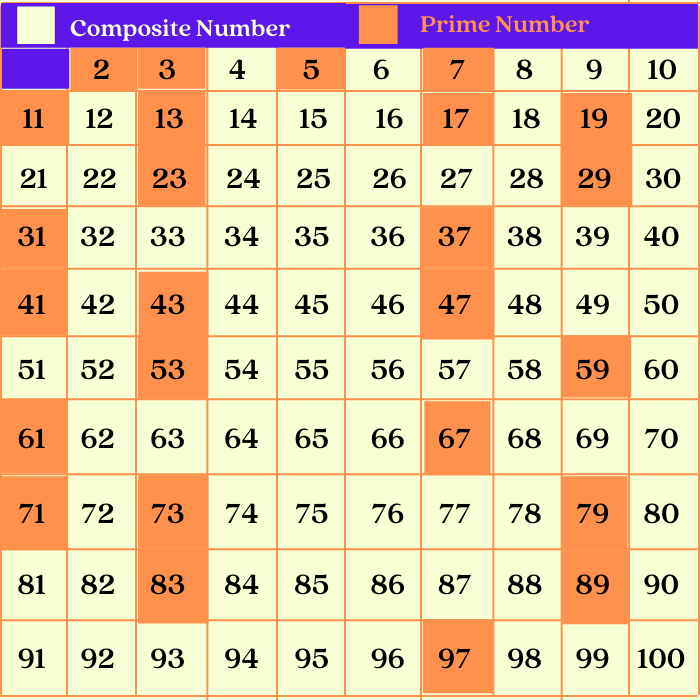In the enigmatic world of numbers, the line between primes and composites often blurs. While prime numbers stand tall as solitary figures, composites result from the intricate union of smaller factors. But amidst this numerical tapestry, 81 presents a puzzling paradox, a number that initially appears prime but succumbs to the allure of composite composition.

Image: pnfpt.com
The Prime Suspect: Prime Numbers Unveiled
Prime numbers, the enigmatic gatekeepers of the numerical realm, possess an aura of allure and exclusivity. Their unique essence stems from their indivisibility by any other whole number besides themselves and one. In their immutable solitude, they stand unyielding, prime candidates for mathematical investigation.
Unveiling 81: The Twist in the Tale
With its odd nature and existence as a square of 9, 81 initially masquerades as a prime number. However, this facade crumbles under mathematical scrutiny. 81 quietly confesses its composite identity, revealing factors of 9 and 9, surrendering its prime status to the authority of composite membership.
Understanding Composites: A Deeper Dive
Composite numbers, unlike their prime counterparts, embody the spirit of collaboration, formed by the harmonious union of smaller factors. They represent the essence of divisibility, allowing an array of whole numbers to claim their share. In the case of 81, the presence of factors 3 and 3 elevates it to the realm of composites.

Image: eroklo.weebly.com
Prime or Composite? The Diagnostic Touchstone
Distinguishing between prime and composite numbers requires a keen mathematical eye. For prime numbers, the absence of factors other than themselves and one reigns supreme. Composites, on the other hand, embrace divisibility, willingly surrendering to the claims of smaller factors.
Determining Primality: A Step-by-Step Guide
To ascertain the prime nature of a number, a pragmatic approach unveils the truth. Initiate the search for divisors, ranging from 2 to the square root of the number in question. If no divisors emerge, the number stands triumphant as prime. Should divisors reveal themselves, the number’s composite identity is unmasked.
In 81’s case, the discovery of 9 as a divisor promptly relegates it to the composite category, extinguishing any lingering doubts about its prime aspirations.
Expert Insights: Unraveling the Nuances
Seasoned mathematicians offer valuable insights into the enigmatic world of prime numbers and their composite cousins:
- Prime Numbers as Building Blocks: Prime numbers form the fundamental cogs in the intricate machinery of mathematics, serving as the very essence of many complex concepts.
- Composite Numbers in Practical Applications: Despite their perceived inferiority, composite numbers play a crucial role in various areas, including cryptography, number theory, and algorithm design.
FAQs on Prime and Composite Numbers
- Q: How can I quickly identify prime numbers?
A: Employ the Sieve of Eratosthenes technique, which efficiently filters out non-prime numbers, leaving the primes behind. - Q: What practical applications involve prime numbers?
A: Prime numbers find widespread use in cryptography, especially in the renowned RSA encryption algorithm. - Q: Can composite numbers ever behave like primes?
A: Yes, certain composite numbers known as pseudoprimes mimic the behavior of primes under specific tests.
Conclusion
The distinction between prime and composite numbers extends far beyond mere mathematical classification. It underscores the intricate interplay between factors and their influence on numerical behavior. As we bid farewell to 81, the prime imposter, let us appreciate the multifaceted nature of numbers, where even the most deceiving of appearances can hide hidden truths.
Is 81 A Prime Number Or A Composite Number
Call to Action
Are you intrigued by the enigmatic world of prime numbers and their composite counterparts? Explore the depths of number theory, uncover the intriguing patterns that govern these mathematical wonders, and unravel the secrets that lie within the fabric of our numerical universe.

